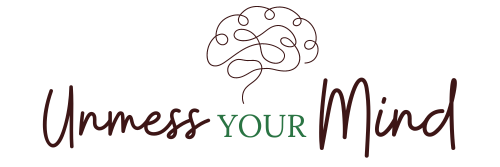Your brain has implicit and explicit memories.
Explicit memories are factual events or information from your past. When you think about these, you actually know you’re remembering something:
Your last birthday. Getting your last job offer. The movie you watched last night. George Washington was the first President of this country.
Implicit memories, to put it simply, you don’t realize you are “remembering” something – you simply believe you’re thinking it now. When you are actually riding a bike now, you are accessing an implicit memory. You’re pulling something up from the past, and it’s not a tangible memory. This is true for walking, talking, and turning on the computer. Yes, you really did do all of these things “for the first time, once” and learned how to do them.
Picture riding a bike. If you remember the day you learned, the event itself, that’s explicit. The act of riding the bike, as you’re doing it today, is implicit. (btw – this is true even if you don’t remember the actual day you learned; none of my clients do).
It makes our lives tremendously easier and quicker to have implicit memories. Imagine rediscovering grass every time you walked by a nice lawn. Imagine having to re-learn how to walk on a daily basis. We need implicit memories to function.
They just also make life a bit complicated when we don’t realize we are living in them.
Not only do they form how we live in the world (ie: walking and talking), these implicit memories are now ways we view the world in adulthood, that we’re not even aware of.
If my only memories of my dad when I was under 10yrs old are lectures about my room not being clean enough or taking too long in the shower, I might have an implicit message in my head that says “Everything I do is wrong.”
Implicit messages are concepts you started believing at different times in your life – Core Beliefs of the World – that you might not even realize you have. In sessions, I sometimes call these “emotional knowings” or “learnings.” I know those aren’t really grammatical terms in the real world and they give my clients a framework of common language and understanding.
Here is a true story of a concept my daughter picked up and a great example…
My 9yr old daughter firmly believes it is her job to take care of me. If I’m crying, she has to comfort me. She has to solve any issue I may be upset about. I have told her many times that it’s not her job to take care of me; that I’m an adult and I lean on other adults. I tell her that I take care of her, not the other way around.
We don’t know where she learned this and we’re trying really hard to teach her otherwise.
On a different note (and related to this story), when our kids have a nightmare, they come to our room to wake us up. We walk them back to their room, comfort them, talk with them, and they go back to sleep peacefully.
Last week, I had a nightmare. I was up from 2:30am – 3:30am. I could not shake it. I did all of the techniques I usually do and nothing worked to get the image/concept out of my head.
I told my husband the next morning. He was sympathetic and then added, “If that happens again, you should wake up our daughter and have her walk you back to bed.”
We both laughed. It was funny.
Then he added “But that would totally teach her that she has to take care of you.”
He understands implicit messages!
That would literally be an implicit message: something that was not said, yet understood.
Implicit memories/messages are how a child interpreted what happened at the time. A network of that “learning” is formed in the brain and then takes over at times moving forward. This is what happens when someone is “triggered.” An implicit memory is what was “triggered” and that person is now responding from the past. That person just doesn’t realize s/he is responding from the past.
My goal as a therapist is to help my clients discover what implicit messages are in their brains. Once we make the message explicit, we process it differently and it doesn’t have the same grasp over our lives.
